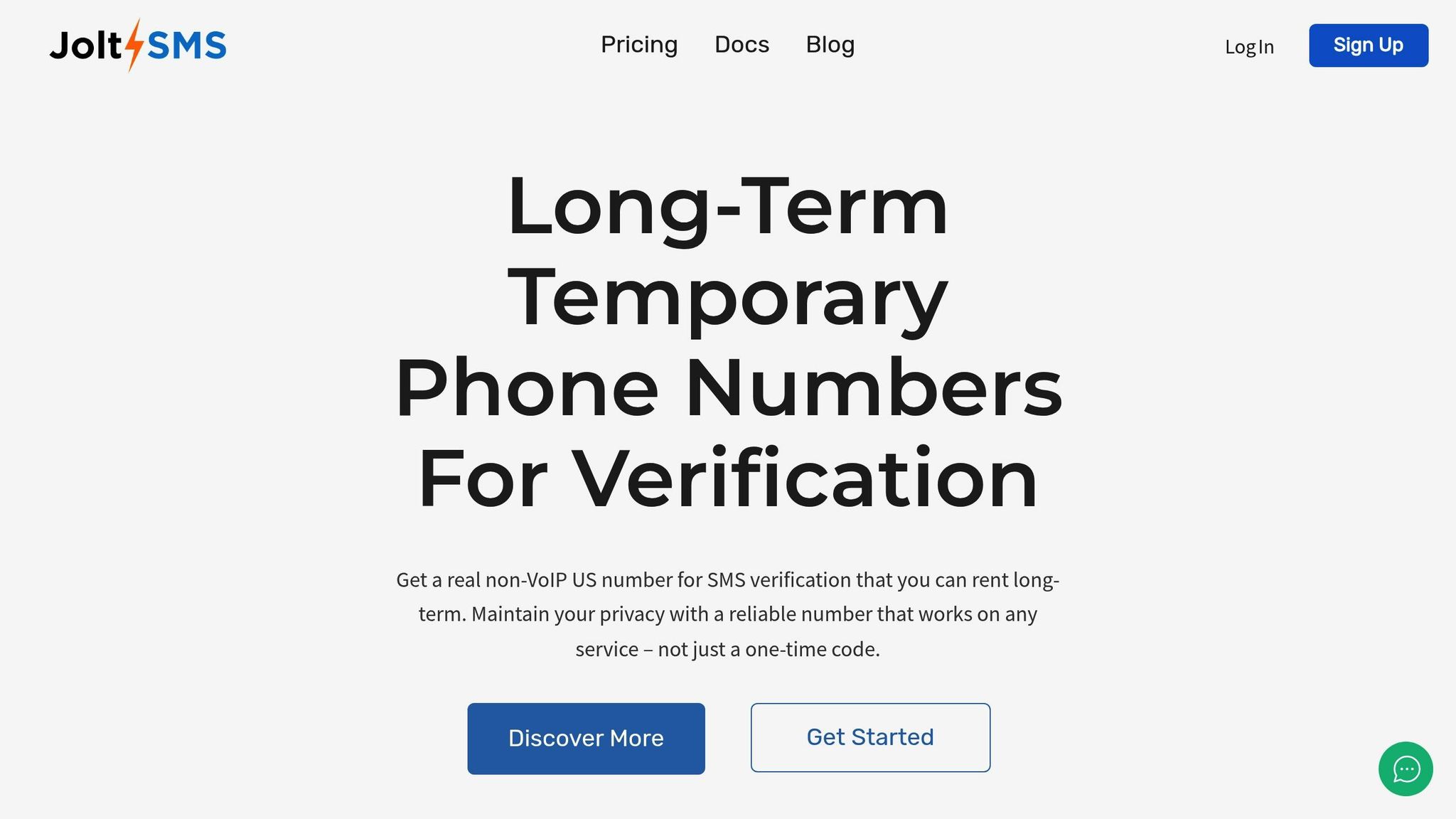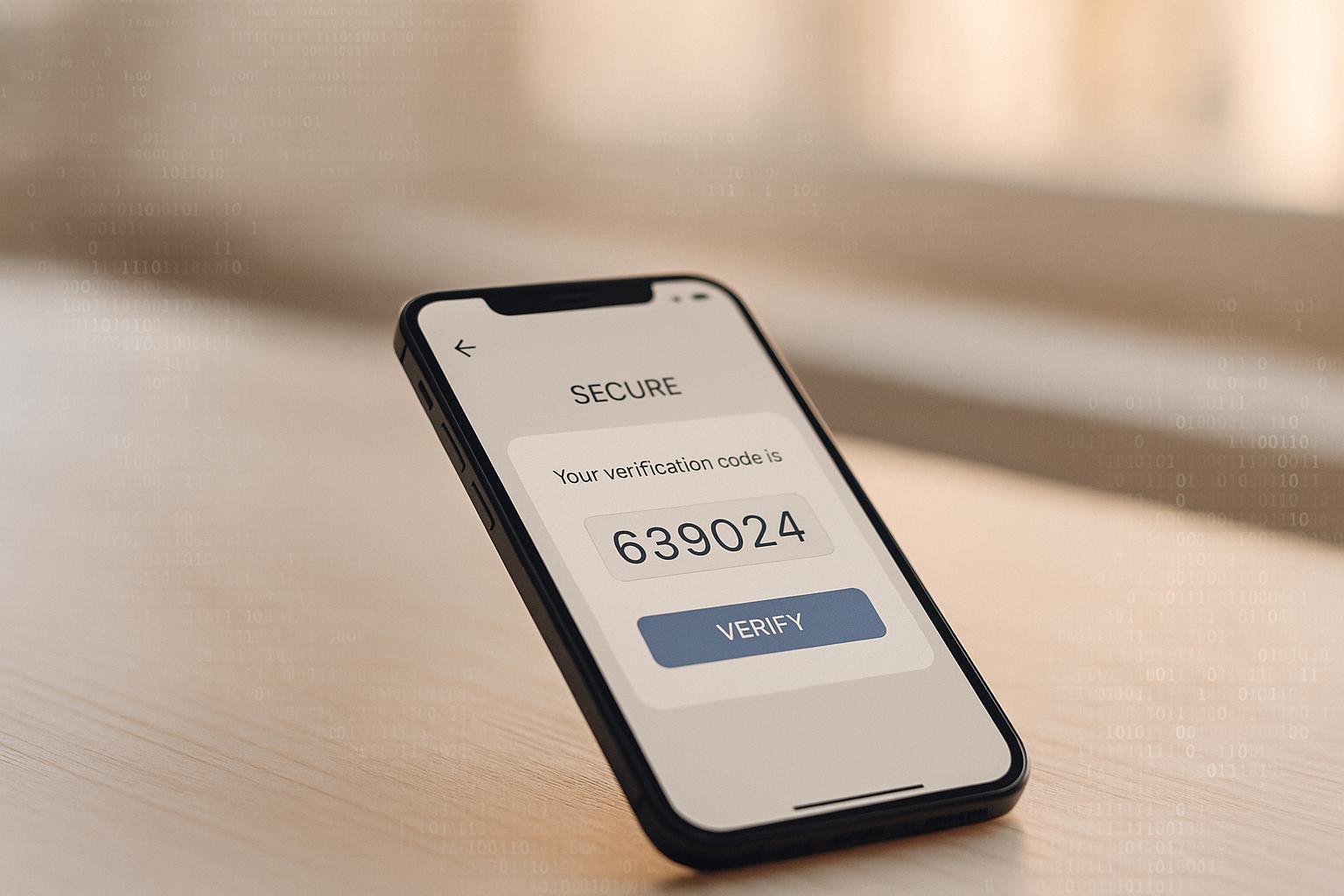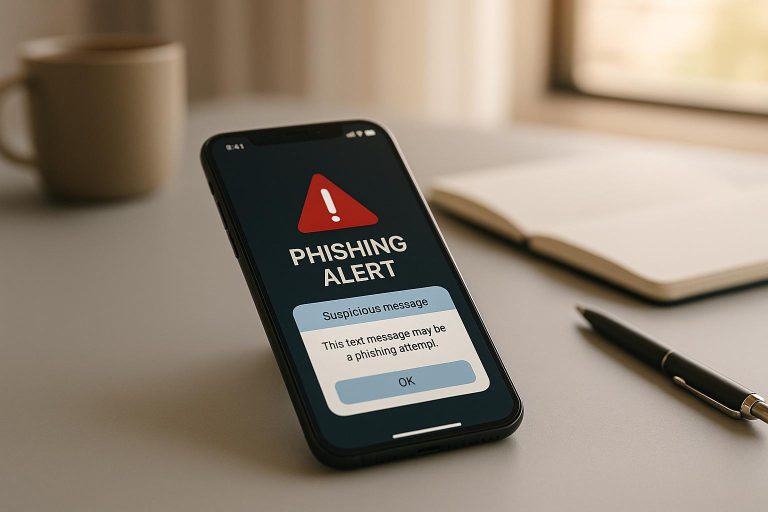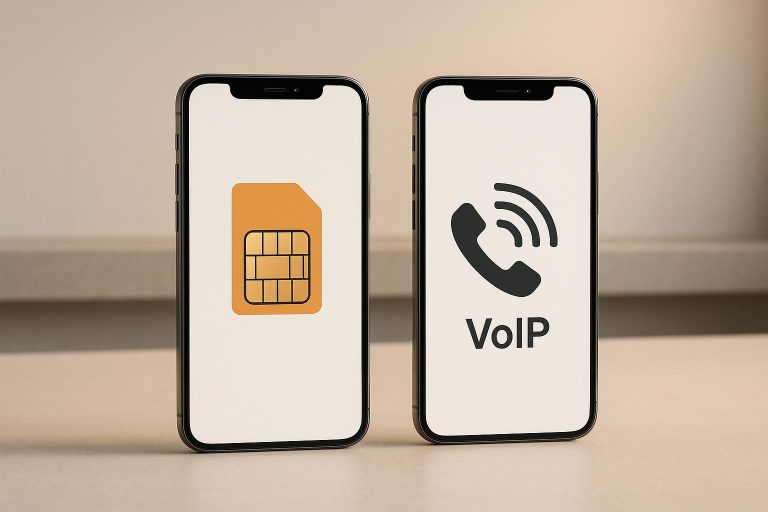Data Retention in SMS Verification Services
Managing SMS data is a balancing act. SMS verification services must retain user data like phone numbers and timestamps to ensure smooth operations, comply with U.S. laws, and detect fraud. However, they also need to protect privacy and limit data collection to what’s necessary.
Key Takeaways:
- Why It’s Important: Data retention helps resolve delivery issues, detect fraud, and comply with laws like TCPA and CCPA.
- Privacy Rules: Regulations demand transparency, user consent, and secure deletion of unnecessary data.
- Legal Compliance: U.S. laws (TCPA, CAN-SPAM, CCPA) and global standards (GDPR) guide retention timelines and data handling.
- Best Practices: Use encryption, limit access, automate deletion, and regularly review policies to align with evolving standards.
- Industry Trends: Companies are shifting to data minimization, automation, and advanced security like end-to-end encryption.
Example: JoltSMS uses dedicated U.S. phone numbers, real-time data access, and strong privacy safeguards to meet compliance and protect users.
Want to know how SMS services handle your data securely? Keep reading.
Legal Requirements for Data Retention
Legal mandates play a critical role in shaping data retention practices, complementing operational needs and security priorities. In the U.S., SMS verification services must navigate a complex web of federal and state regulations to ensure compliance [2].
U.S. Laws That Affect Data Retention
Federal laws provide the foundation for data retention requirements in SMS verification services. The Telephone Consumer Protection Act (TCPA), for instance, regulates telemarketing practices and mandates express written consent for SMS communications. Businesses must maintain detailed records of this consent, as violations can lead to hefty penalties – up to $500 per unsolicited message and $1,500 for willful breaches [3][7]. Recent enforcement actions highlight the financial risks of non-compliance [5].
The CAN-SPAM Act adds another layer of requirements for messages promoting commercial products or services. It mandates accurate headers, clear subject lines, advertising disclosures, a physical address, and a functional opt-out mechanism. Non-compliance can result in fines of up to $51,744 per email [3].
State laws, such as the California Consumer Privacy Act (CCPA), often impose stricter standards. Under the CCPA, California residents have the right to know what personal information is collected, request its deletion, or restrict its sale or sharing. Businesses that violate these provisions face penalties of $2,500 per unintentional violation and $7,500 per intentional violation [12].
Global Privacy Standards
Although U.S. businesses primarily focus on domestic compliance, international frameworks like the General Data Protection Regulation (GDPR) are shaping data retention practices, especially for companies with international users [10][11]. The GDPR emphasizes principles like data minimization and purpose limitation, requiring businesses to retain data only for legitimate purposes and dispose of it once those purposes are fulfilled [9].
Here’s how various regulatory frameworks compare for SMS verification services:
| Requirement | CAN-SPAM (US) | GDPR (EU/EEA) | CCPA/CPRA (California) |
|---|---|---|---|
| Consent Type Required | Implied consent; opt-out based | Explicit opt-in consent required | Opt-out based; right to know/delete |
| Unsubscribe Mechanism | Included in every email | Easy to access, like subscribing | Included, with added deletion rights |
| Penalties for Violations | Up to $51,744 per email | Up to €20M or 4% of global revenue | $2,500–$7,500 per violation |
The growing alignment of global standards around consent-based models is pushing many U.S. companies to adopt GDPR-like practices. This shift not only simplifies international operations but often provides stronger protections than U.S. laws alone [12].
User Consent and Transparency
Securing and documenting user consent is a cornerstone of compliance for SMS verification services. The TCPA requires prior express written consent for marketing messages, with clear disclosures provided upfront [4][8].
"Basically, anything that’s not purely informational is really considered potentially marketing."
This insight from Alexandra Krasovec, Partner at Manatt, Phelps & Phillips, LLP, highlights how even seemingly harmless messages can fall under TCPA regulations if they contain promotional elements [6].
Transparency is equally critical. Businesses must maintain detailed, secure records of when and how user consent was obtained to prevent unauthorized access or tampering [3]. Since users can revoke consent easily, companies must process opt-out requests promptly and maintain accurate do-not-contact lists [3][10]. Regular audits of SMS practices can help identify and address compliance gaps before they escalate into costly violations [3].
The Federal Trade Commission (FTC) also enforces transparency through the FTC Act, which protects consumers from unfair or deceptive practices. This includes failures to honor privacy promises or maintain adequate data security measures [9]. Transparency, therefore, extends beyond obtaining consent – it involves keeping promises about how user data is handled and ensuring those commitments are met.
Data Retention Best Practices
Managing data retention effectively means carefully balancing legal requirements, business objectives, and user privacy. For SMS verification services, this involves creating clear policies that protect user data while meeting operational demands.
How Long to Keep Data and When to Delete It
Deciding how long to retain data depends on several factors, including regulatory requirements, business operations, and legal considerations like eDiscovery [13]. For instance, healthcare organizations must follow HIPAA guidelines, financial services are bound by audit mandates, and businesses handling California residents’ data must comply with the CCPA [13]. Additionally, the type of SMS message plays a role. Transactional messages, such as account verifications, often have shorter retention requirements compared to promotional messages, which may require longer retention to maintain consent records [4]. On top of that, state-specific regulations may impose additional timing and content rules [7].
Operational needs and legal risks also influence retention policies. Fraud investigations, customer support, and audits may require access to historical data, while potential lawsuits might necessitate extended retention for eDiscovery purposes. However, these needs must be balanced with privacy obligations [13]. A practical solution is implementing tiered retention schedules that align with both legal mandates and business needs. These schedules also help lay the groundwork for strong security practices.
Data Security Methods
Securing SMS verification data is essential for maintaining trust and meeting compliance standards. A multi-layered approach to security is critical, as data breaches can result in significant financial and reputational damage [16].
Encryption is one of the most effective tools for safeguarding data. Ben Kast, Principal Consultant at LMG Security, emphasizes:
"If protecting data is your main concern, employing the proper use of advanced encryption is one of your best tools." [15]
For data at rest, full disk or file encryption with offline key storage is recommended. For data in transit, TLS encryption is essential [15].
Access controls are equally important, especially given that over 80% of breaches are linked to weak, reused, or stolen passwords [17]. To mitigate these risks, companies should enforce strong password policies combined with multi-factor authentication (MFA), implement rate-limiting for access attempts, and conduct regular security audits. Adopting a Zero Trust Architecture is another effective measure. This approach continuously verifies all access requests, regardless of network location, adding an extra layer of protection [14]. Additionally, immutable storage ensures that data cannot be altered without authorization, making it invaluable for maintaining audit trails and compliance records [14].
Regular Reviews and Policy Updates
Strong security measures must be paired with ongoing policy reviews to remain effective. Regularly revisiting policies ensures compliance with changing regulations and helps organizations adapt to new threats [18]. This process should involve collaboration across departments, including legal, finance, and operations, to ensure all requirements are addressed [18].
Policy reviews should focus on several key areas: assessing new industry or legal standards, ensuring the organization can produce records for audits or legal cases, and evaluating the effectiveness of current data protection strategies [18][19].
Transparency is also becoming increasingly important. Companies should clearly explain what data they retain, how it is stored, and how it is used. Providing users with control over their personal information is not only a best practice but also a growing legal obligation under modern privacy laws [18]. These laws emphasize that personal data should only be retained as long as necessary to fulfill its original purpose [1]. By following these practices, organizations can achieve compliance while maintaining operational efficiency and user trust.
Current Trends in SMS Verification Data Retention
With evolving legal requirements and heightened consumer awareness, SMS verification providers are reshaping how they handle data retention. Stricter privacy laws and the growing demand for transparency are driving these changes.
Prioritizing Privacy Through Minimal Data Retention
A growing number of organizations are adopting data minimization – keeping only the information necessary for their operations. This shift aligns with both regulatory requirements and consumer expectations. For instance, surveys reveal that about 76% of Americans distrust social media companies with their data, 72% favor stronger privacy regulations, and nearly 70% doubt businesses make responsible data-related decisions [20]. These statistics highlight the shift away from the outdated "store everything" model toward well-defined, purpose-driven retention policies.
Automation and User Empowerment
Automation is becoming a cornerstone of modern data management, especially when addressing user privacy requests. Tools like OneTrust DSR Automation streamline tasks such as ID verification, data deletion, legal holds, and redaction, all while adhering to regulatory workflows [22]. This efficiency not only reduces compliance costs but also handles the increasing number of privacy requests more effectively.
Today’s SMS privacy policies are more transparent, detailing how users can opt in or out of messaging, specifying retention periods, and outlining security measures. By regularly updating these policies, companies ensure users have greater control over their personal data [23].
Strengthening Security with Advanced Technology
End-to-end encryption (E2EE) is quickly becoming a standard for messaging platforms. Miriam Liszewski, RCS Commercial Product Manager at Sinch, explains:
"This means that in the not-so-distant future, end-to-end encryption will be supported on both iOS and Android devices, ensuring messages will remain private and protected regardless of the messaging technology a user is communicating from." [25]
Enhanced security measures, including advanced encryption, machine learning tools (boasting 99.82% accuracy for detecting suspicious SMS activity and 99.73% for phishing prevention), and Privacy-Enhancing Technologies (PETs), are setting new benchmarks. With GDPR fines reaching up to 4% of global revenue, companies are adopting zero-trust security models, rigorous encryption protocols for data transfers, and regular security audits to address vulnerabilities [20][24]. These developments are shaping how SMS verification services approach data retention, ensuring privacy and security remain top priorities.
sbb-itb-070b8f8
How JoltSMS Handles Data Retention

JoltSMS takes a thoughtful approach to data retention, prioritizing user privacy and security while meeting regulatory requirements. By adopting clear policies and safeguards, the service aligns with modern practices favoring minimal data collection and robust protection of personal information.
Dedicated Non-VoIP U.S. Numbers
JoltSMS provides dedicated, real-SIM U.S. phone numbers for customers at $50 per month, with a minimum rental period of 30 days. Unlike shared number services, these numbers are exclusively assigned to a single user during the rental period. This exclusive use minimizes data retention risks, as numbers are never shared or recycled while active. Additionally, the use of carrier-grade SIM hardware ensures 99.9% delivery reliability and establishes clear ownership boundaries for data.
These dedicated numbers are accepted across over 1,000 platforms, including major sites like Google, Tinder, Coinbase, WhatsApp, banks, gaming platforms, and cryptocurrency exchanges. This allows users to consolidate their SMS verification needs with a single number, providing added convenience while supporting privacy and compliance.
Transparent Data Access and Privacy Safeguards
JoltSMS ensures quick and secure access to incoming SMS codes through various channels, such as a real-time dashboard, REST API integration, and webhook connections to tools like Slack or Discord. This immediate delivery system reduces the need for prolonged message storage, aligning with industry standards for data protection.
To safeguard personal information, Jolt Software, Inc. employs encryption, access controls, and other technical measures outlined in its Security Policy. Users maintain control over their data throughout the service relationship. Upon request, Jolt Software will confirm whether it holds or processes any customer data. Additionally, the company notifies third parties of any updates, withdrawals, or objections related to shared personal data. These practices reflect JoltSMS’s broader commitment to transparency and regulatory compliance.
Compliance and Customer Support
Jolt Software, Inc. adheres to key privacy standards, including GDPR, CCPA, and HIPAA. The company regularly reviews third-party compliance and promptly informs users of any changes in how their data is handled.
To support its users, JoltSMS offers 24/7 human customer support via help.joltsms.com and provides a money-back guarantee for undelivered SMS. The company also maintains detailed records of lawful investigations and external audits, ensuring transparency with third parties, including source authority information.
Summary and Main Points
This section highlights key industry trends and showcases how JoltSMS sets itself apart in the world of SMS verification services. A major focus in the field is balancing security, compliance, and user privacy when it comes to data retention.
Industry Standards and Trends Overview
The SMS verification industry is shifting toward data minimization, automated deletion processes with user control, and advanced security measures. These changes are aimed at reducing compliance risks while building stronger customer trust.
Enhanced encryption and security protocols have become non-negotiable, especially in light of the alarming $1.1 billion lost to digital impersonation scams just two years ago [21]. Virginie Debris, SVP of Product – Messaging & Operator at Sinch, emphasizes the importance of trust in secure communication channels:
"The richer the channel, the more important trust becomes. When you’re sharing sensitive information or conducting transactions, customers need to know they’re in a secure environment." [21]
Additionally, the adoption of artificial intelligence (AI) and machine learning (ML) is reshaping how data retention is managed. Jonathan Bean, CMO of Sinch, highlights the growing role of trust in enterprise communications:
"The advent of generative AI has elevated the importance of trust. It’s become the defining factor in how enterprises approach customer communications." [21]
These evolving practices provide the backdrop for understanding JoltSMS’s unique approach.
What Makes JoltSMS Different
JoltSMS stands out by using dedicated non-VoIP U.S. numbers and offering real-time data access channels, all while adhering to best practices in data minimization and compliance. The service integrates smoothly with platforms like Slack, Discord, a REST API, and real-time dashboards, ensuring minimal data storage.
JoltSMS also complies with key privacy regulations and offers 24/7 human customer support along with a money-back guarantee for undelivered SMS. This commitment to accountability and customer-focused privacy aligns perfectly with industry trends, while also raising the bar for what users can expect from SMS verification services.
FAQs
How do SMS verification services manage data retention while protecting user privacy?
SMS verification services are designed to handle data with care, keeping it only as long as needed to complete the verification process or meet legal obligations. For instance, data is often deleted within a specific period, like 30 days, or right after a user cancels the service. This approach minimizes privacy risks and ensures sensitive information isn’t stored longer than necessary.
To protect user information, these services implement strict protocols for secure storage and timely deletion. They also comply with privacy laws like GDPR and CCPA by using advanced security measures to block unauthorized access, ensuring user data remains private and protected.
What are the legal requirements for data retention in SMS verification services under U.S. laws like the TCPA and CCPA?
U.S. regulations like the TCPA and CCPA outline specific rules for how SMS verification services should handle data retention. The TCPA requires businesses to keep records of consent and communication logs for at least 4 years. This helps ensure compliance and provides necessary documentation in case of legal disputes.
The CCPA, on the other hand, mandates that companies retain personal data – such as consumer consent and request records – for a period sufficient to meet legal obligations and address consumer rights requests. While the exact timeframe may vary, it’s generally advised to retain this data for at least 2 years. Non-compliance with these rules can lead to fines, legal challenges, and damage to a company’s reputation.
Following these regulations not only helps businesses stay compliant but also reinforces transparency, safeguards consumer rights, and reduces legal risks.
How do SMS verification services ensure data security and comply with privacy regulations?
To safeguard data and adhere to privacy regulations, SMS verification services must prioritize strong protections like encryption to secure message content. Additionally, obtaining clear user consent before processing any data is a critical step. Transparent and well-communicated privacy policies are key to aligning with global standards and fostering trust among users.
Strengthening security involves more than just technical measures. Regularly updating security protocols, actively monitoring for risks such as phishing and SIM swapping, and maintaining detailed logs for audits are all essential practices. On top of that, educating users on how to protect their accounts can significantly bolster overall security efforts.







